We had a big celebration on June 12th at the end of our program year. Take a look!
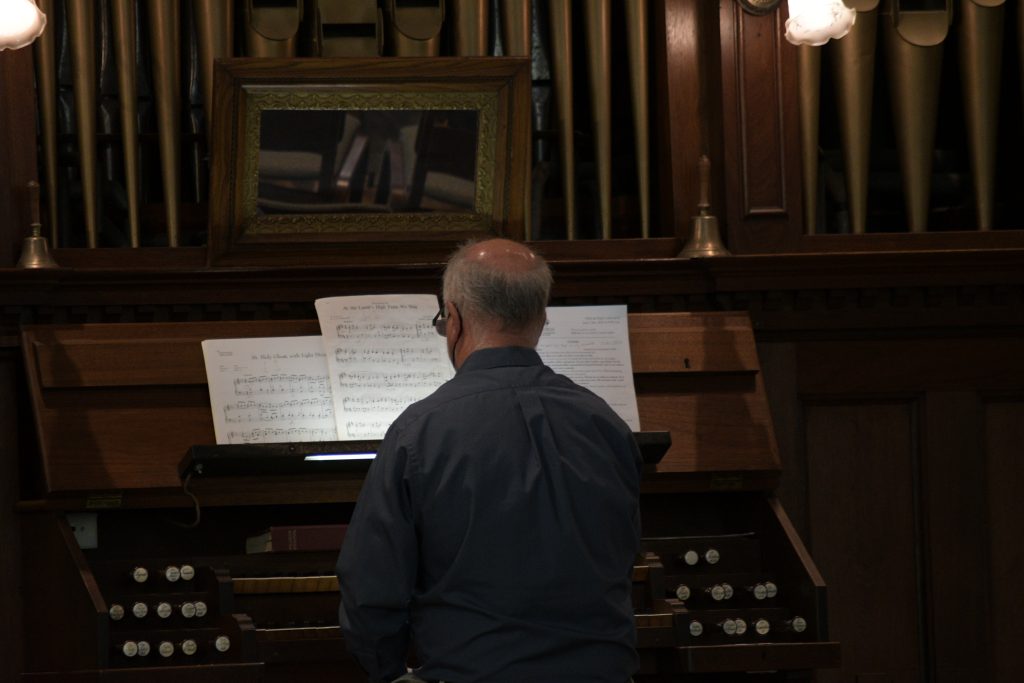
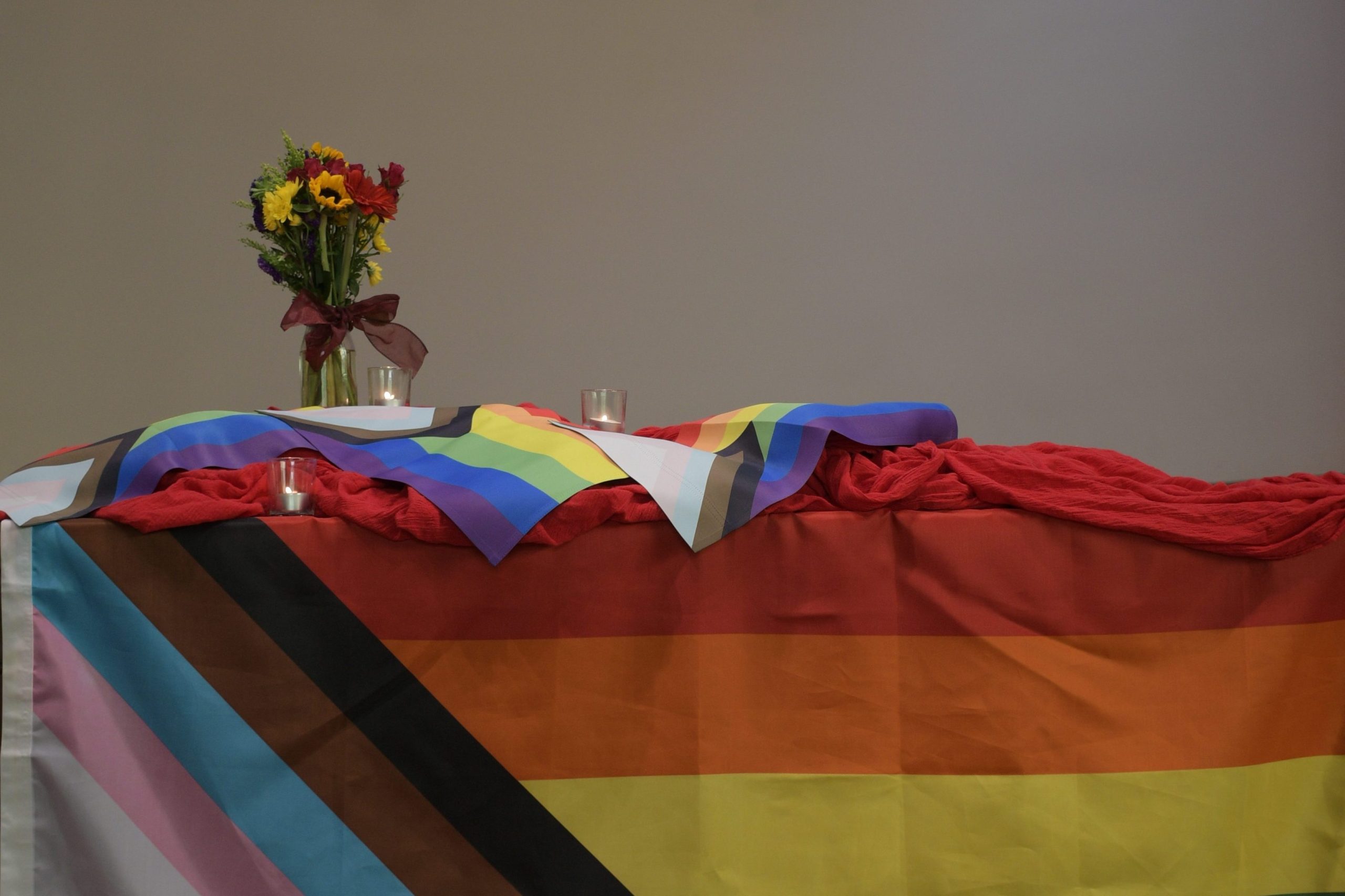
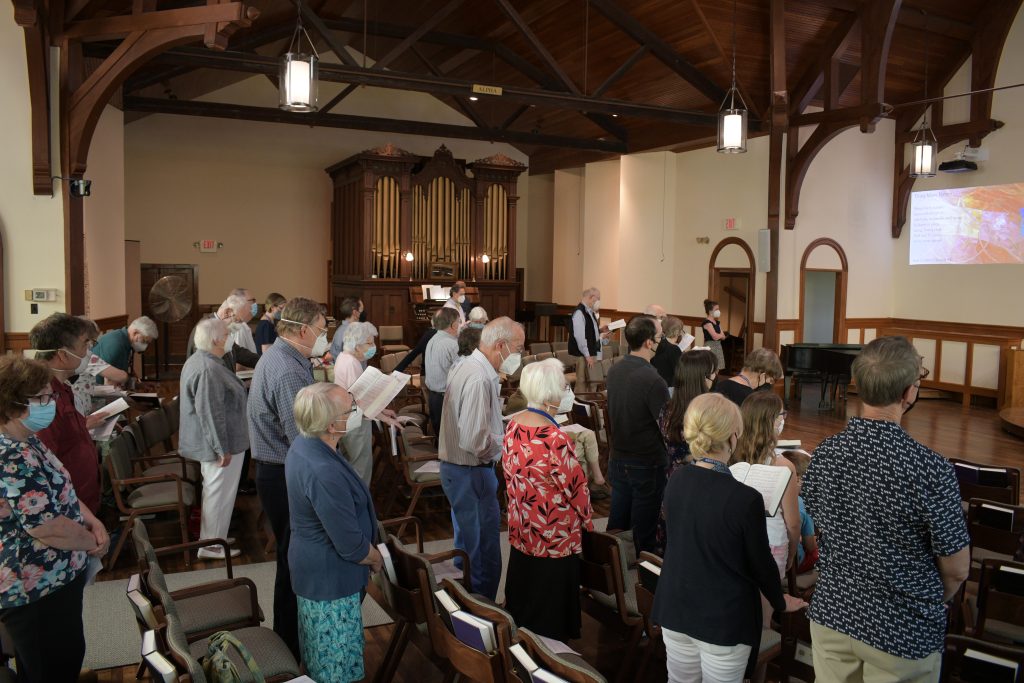
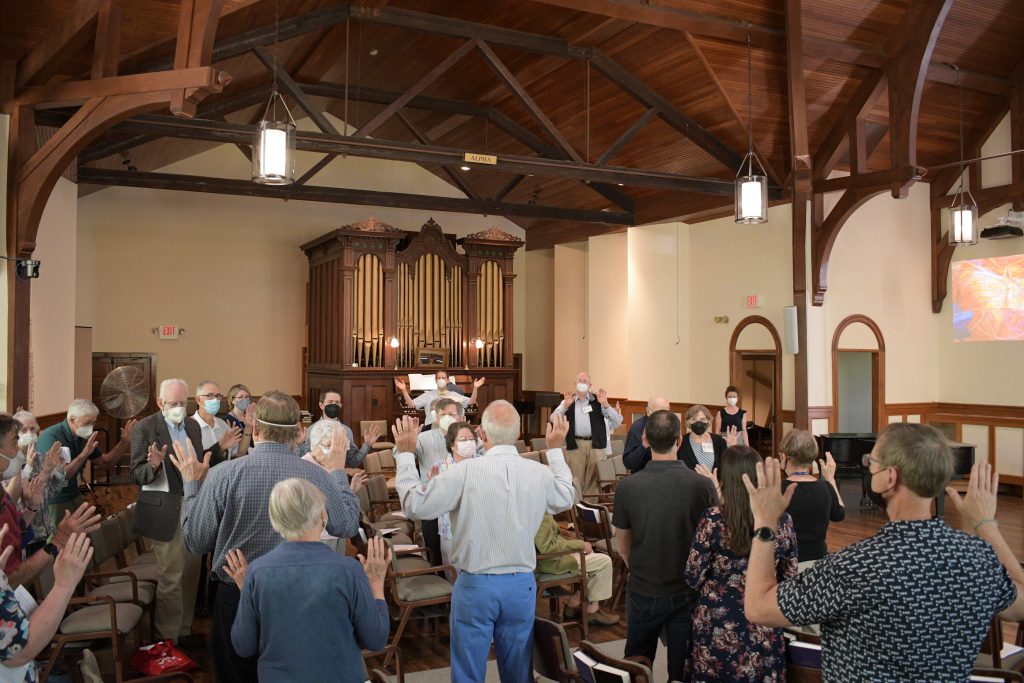
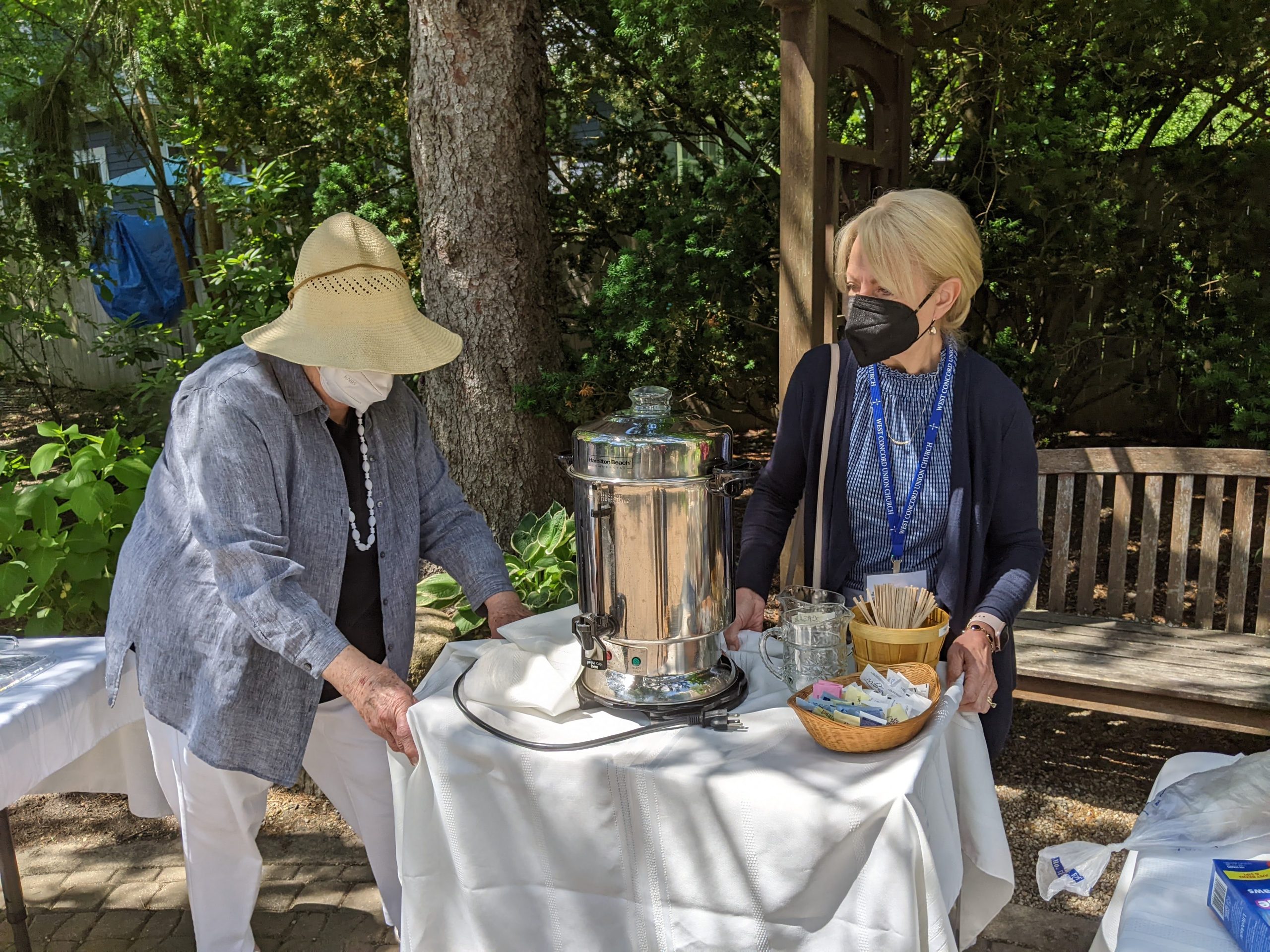
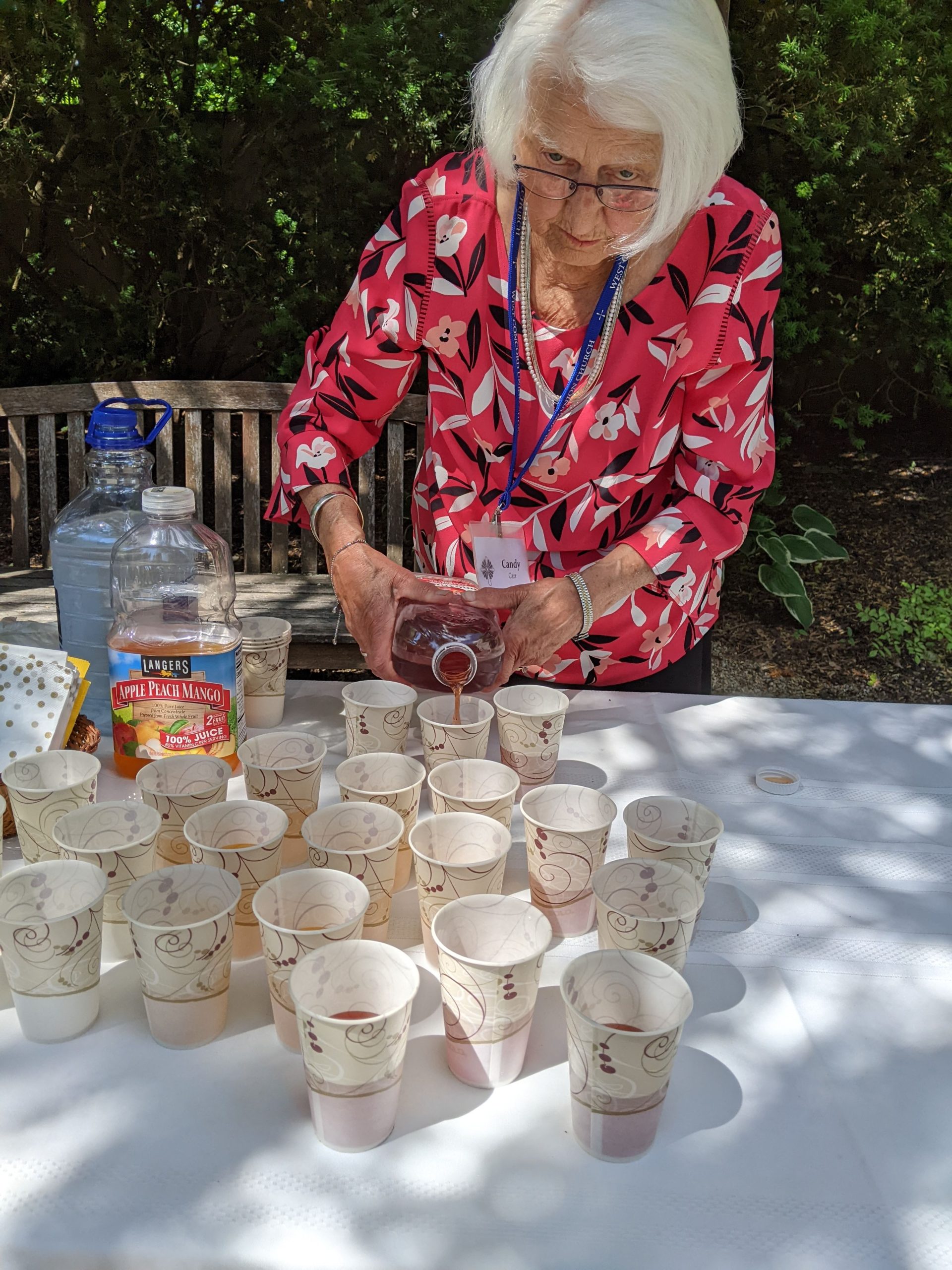
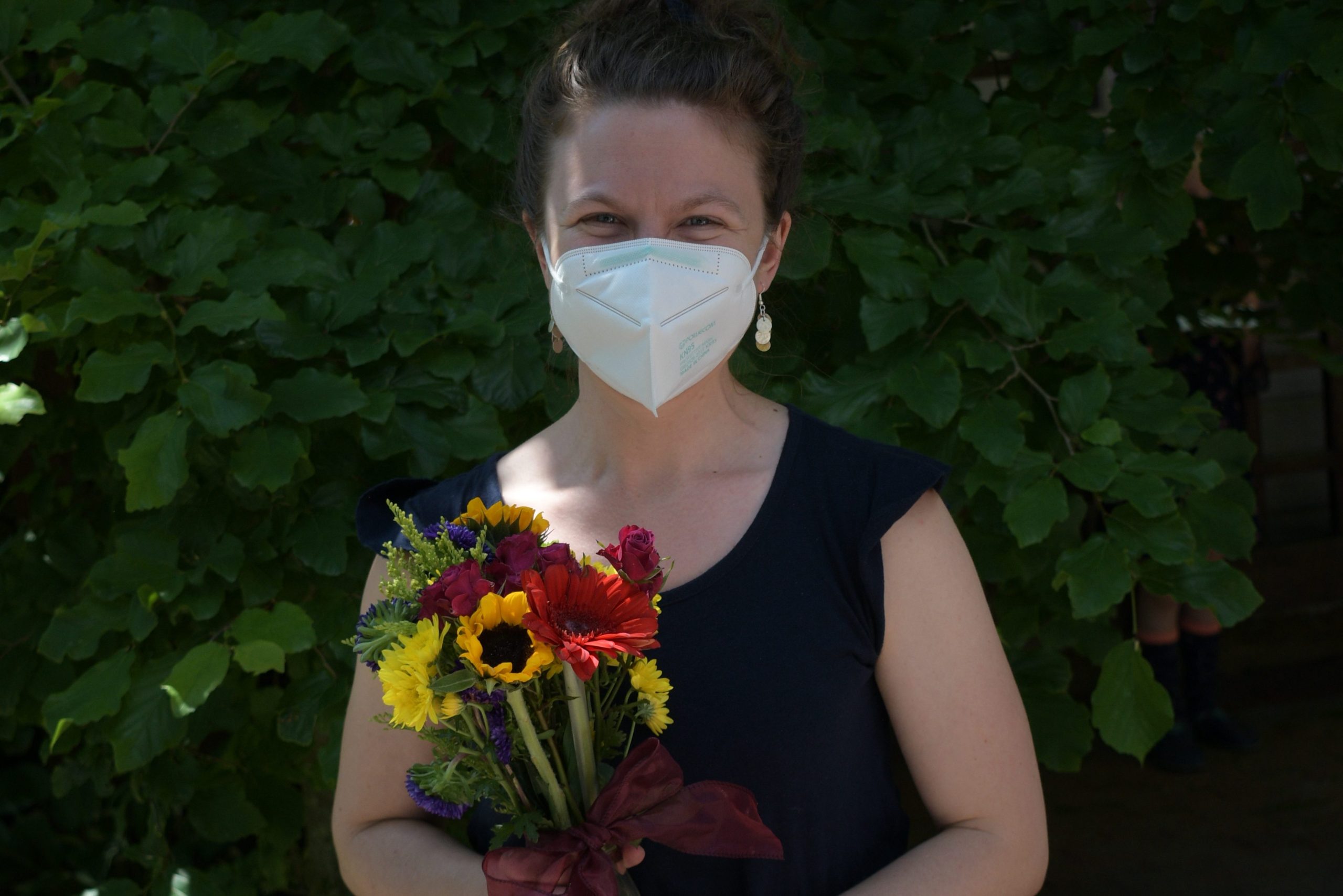
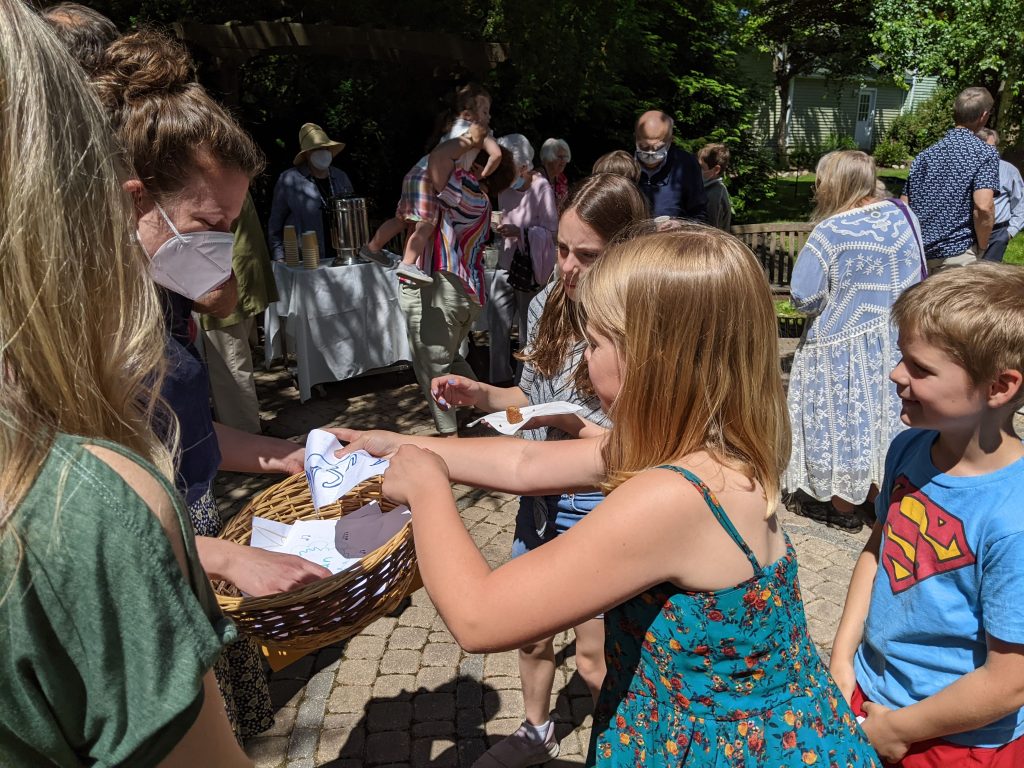
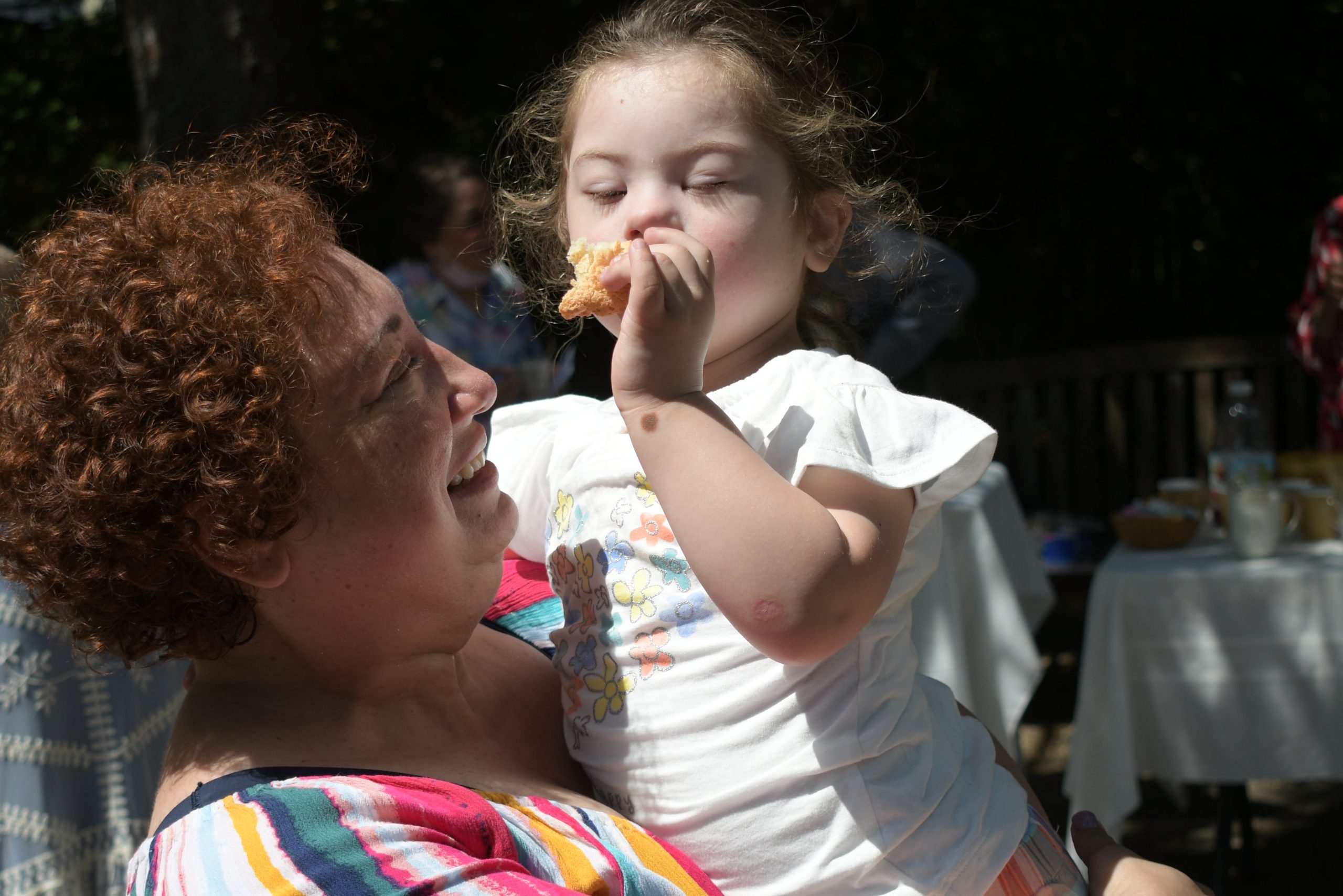
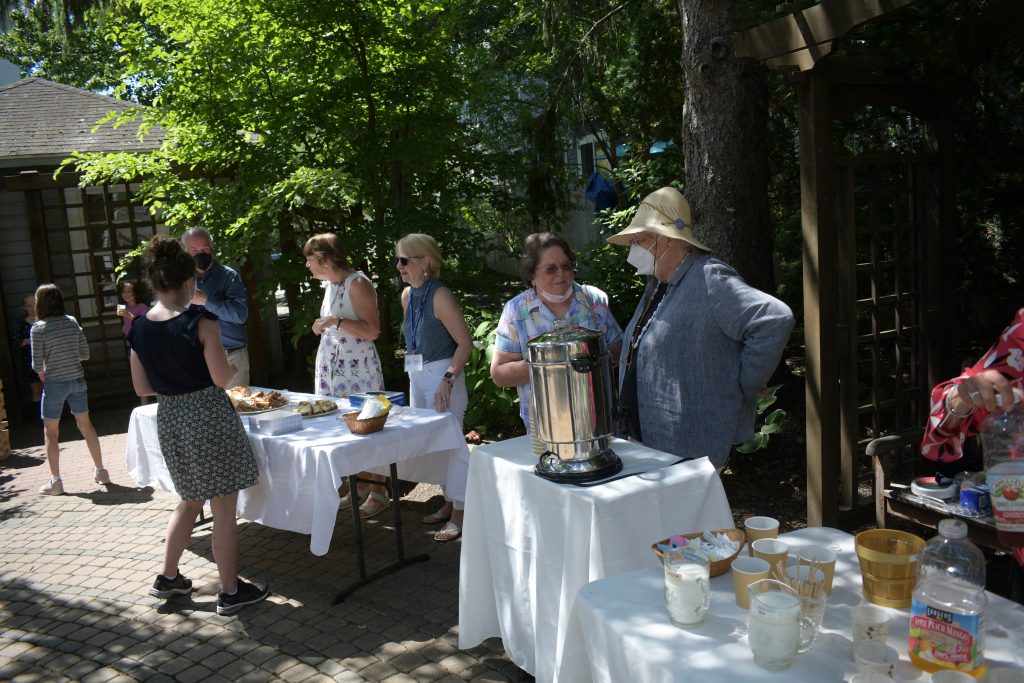

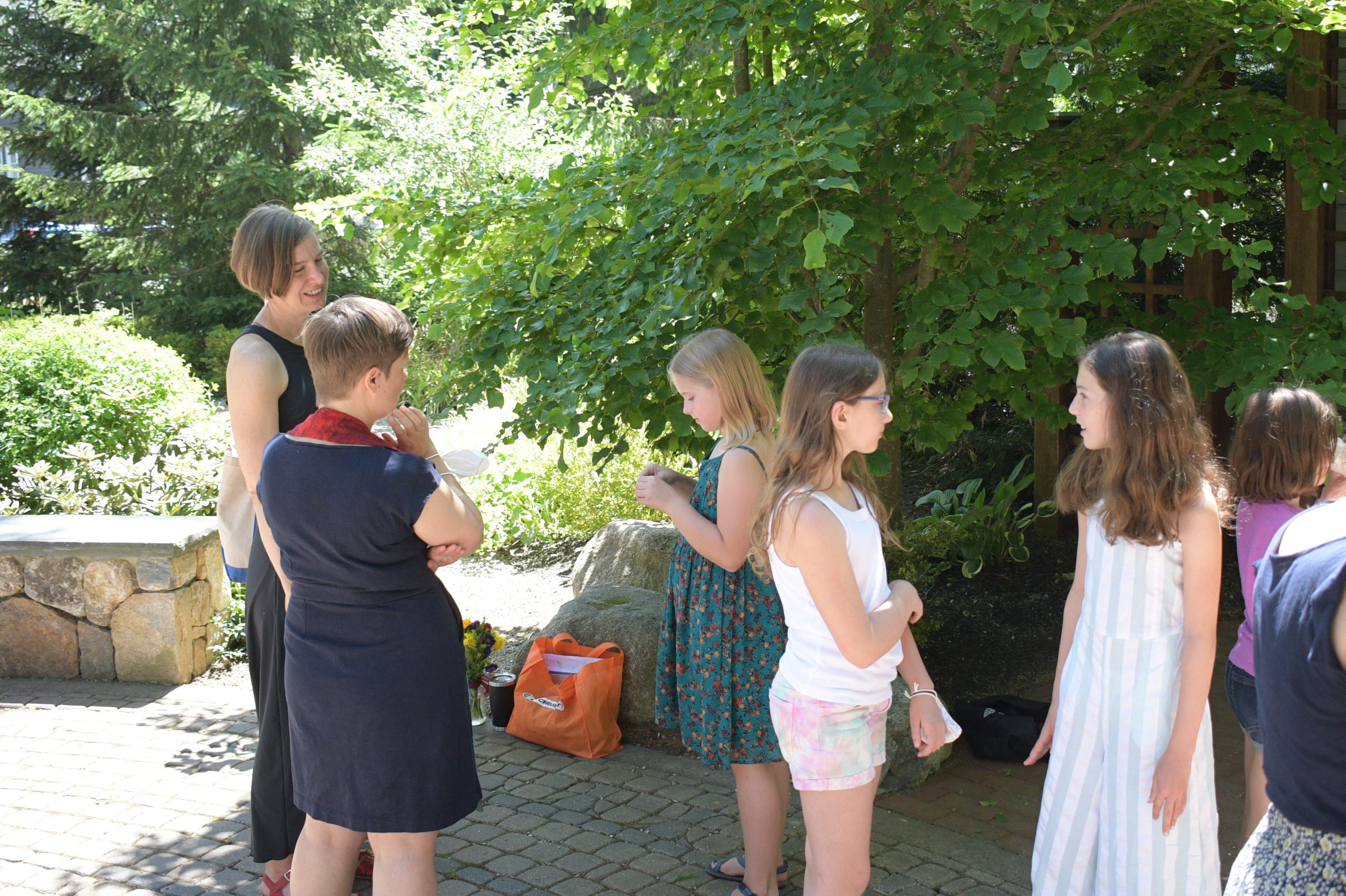
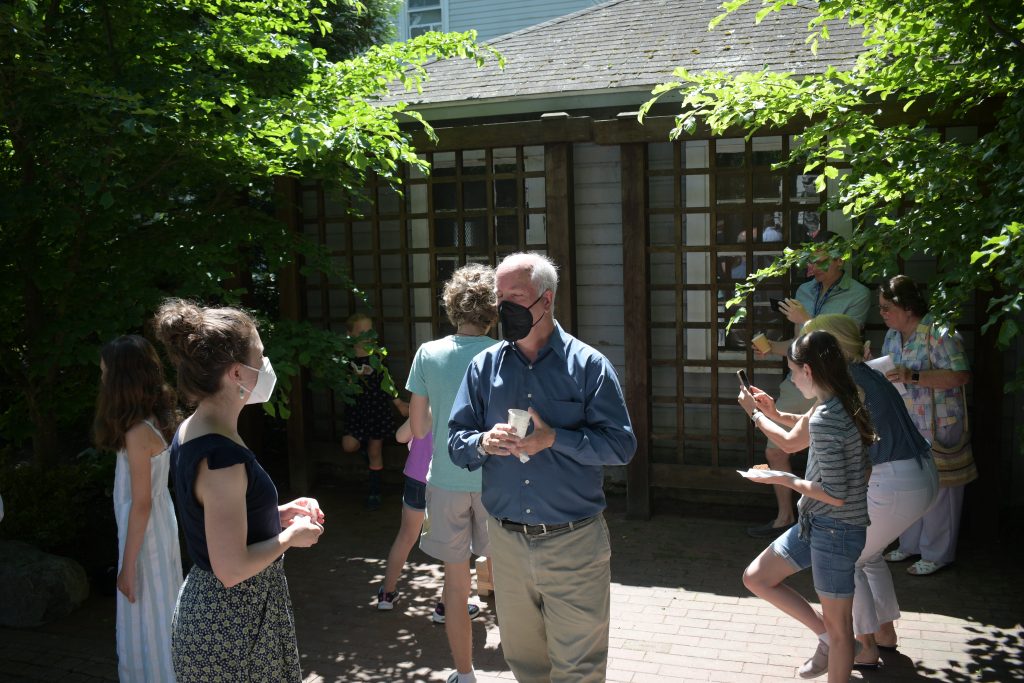
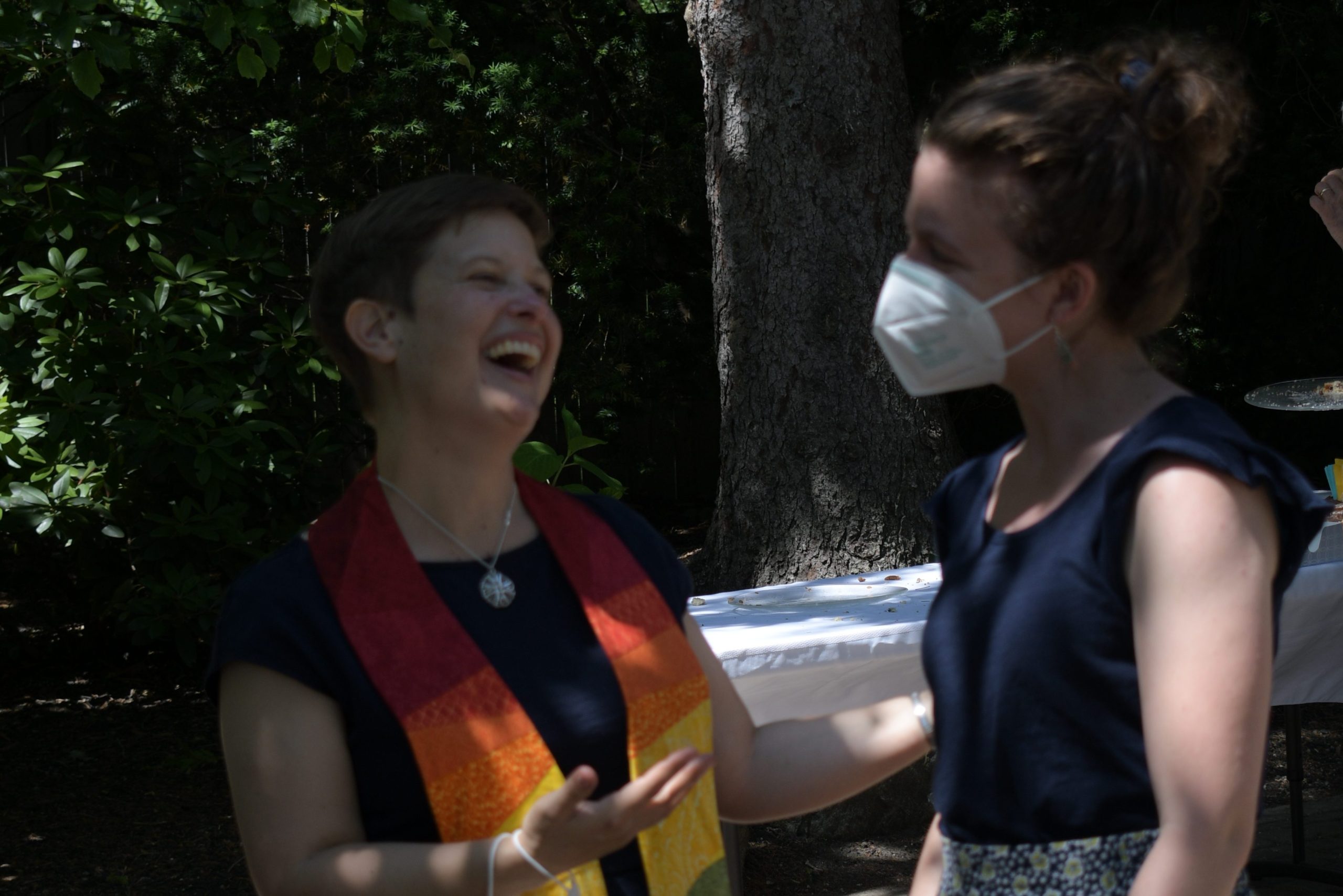
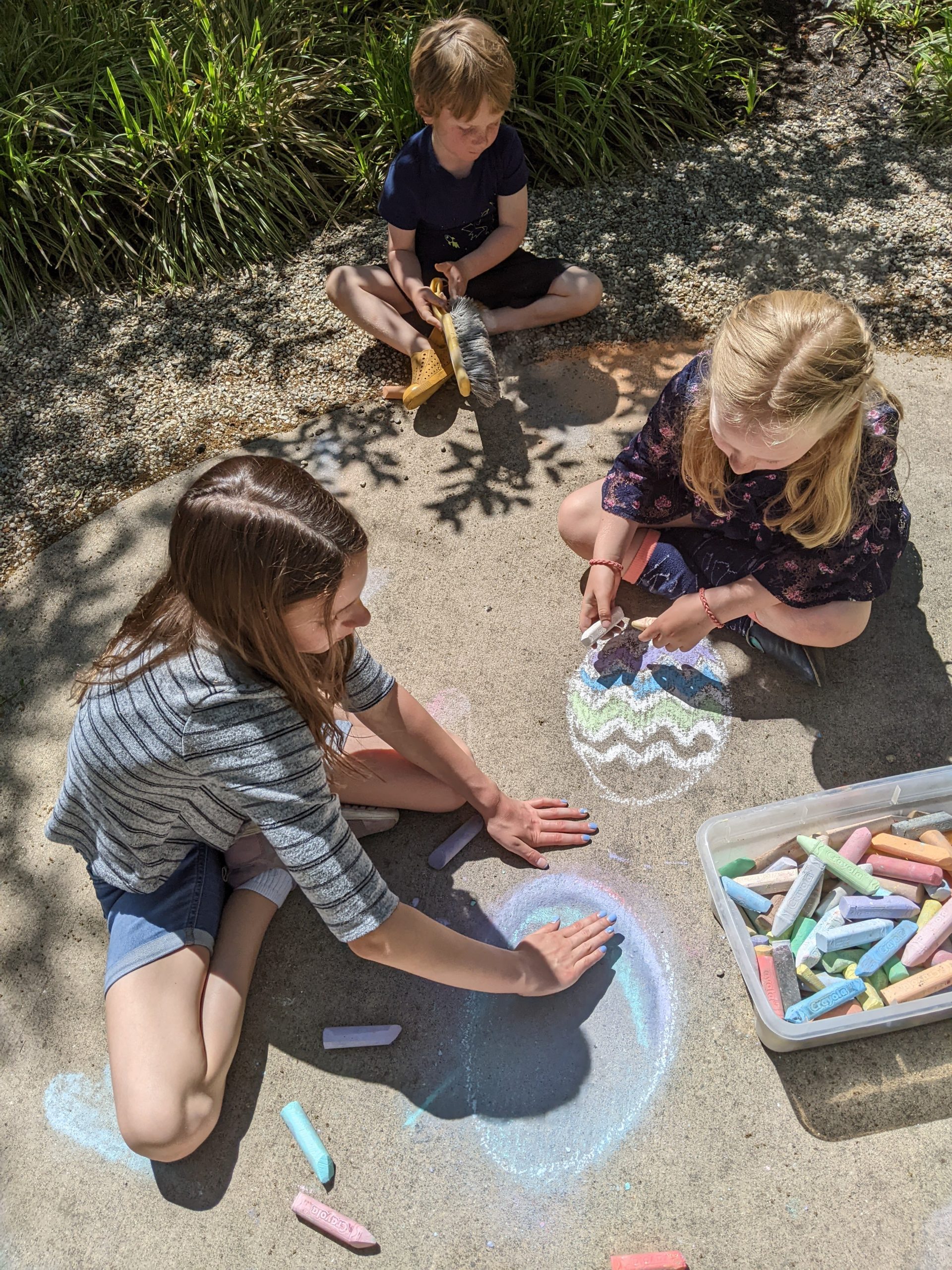

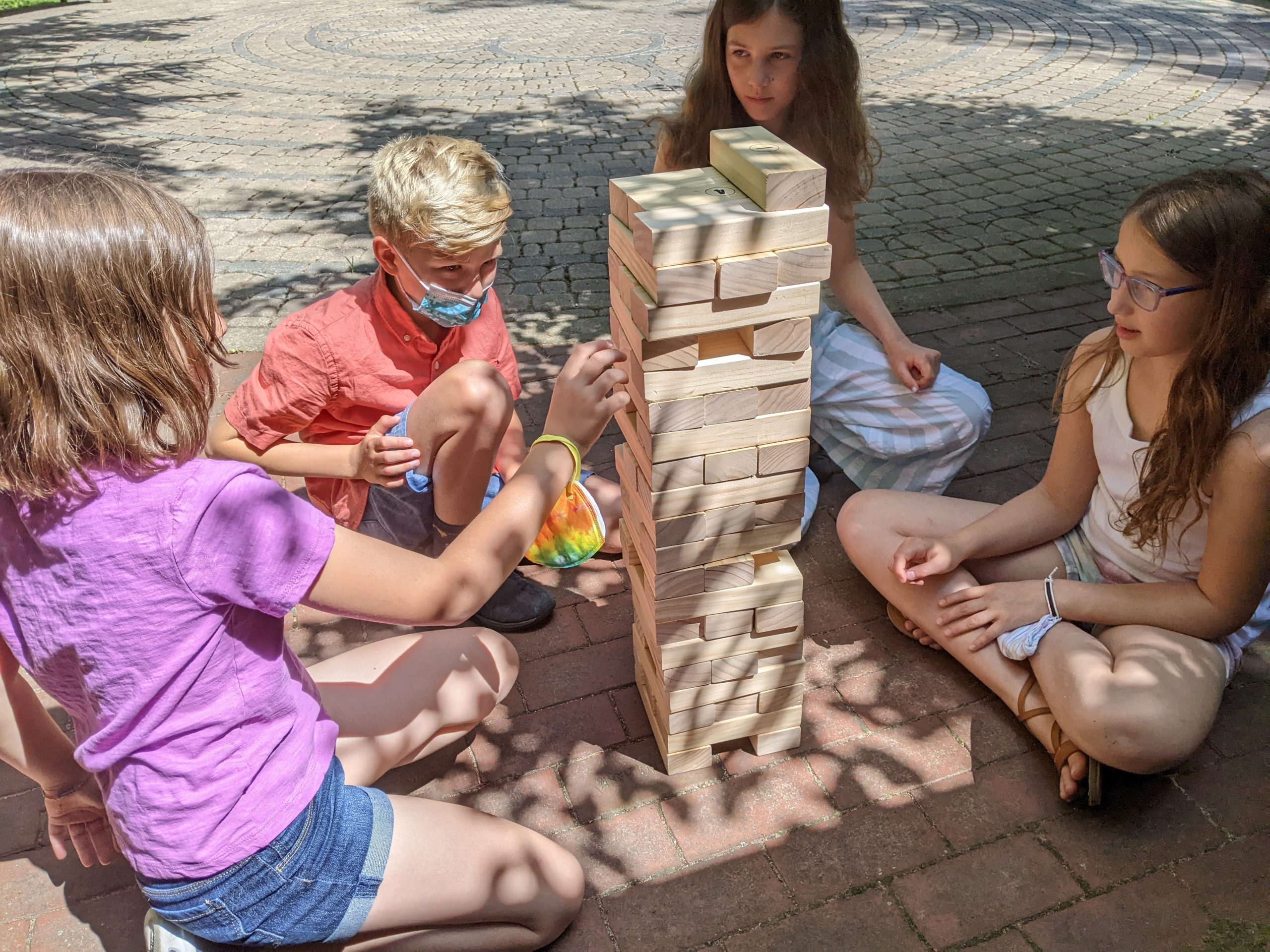
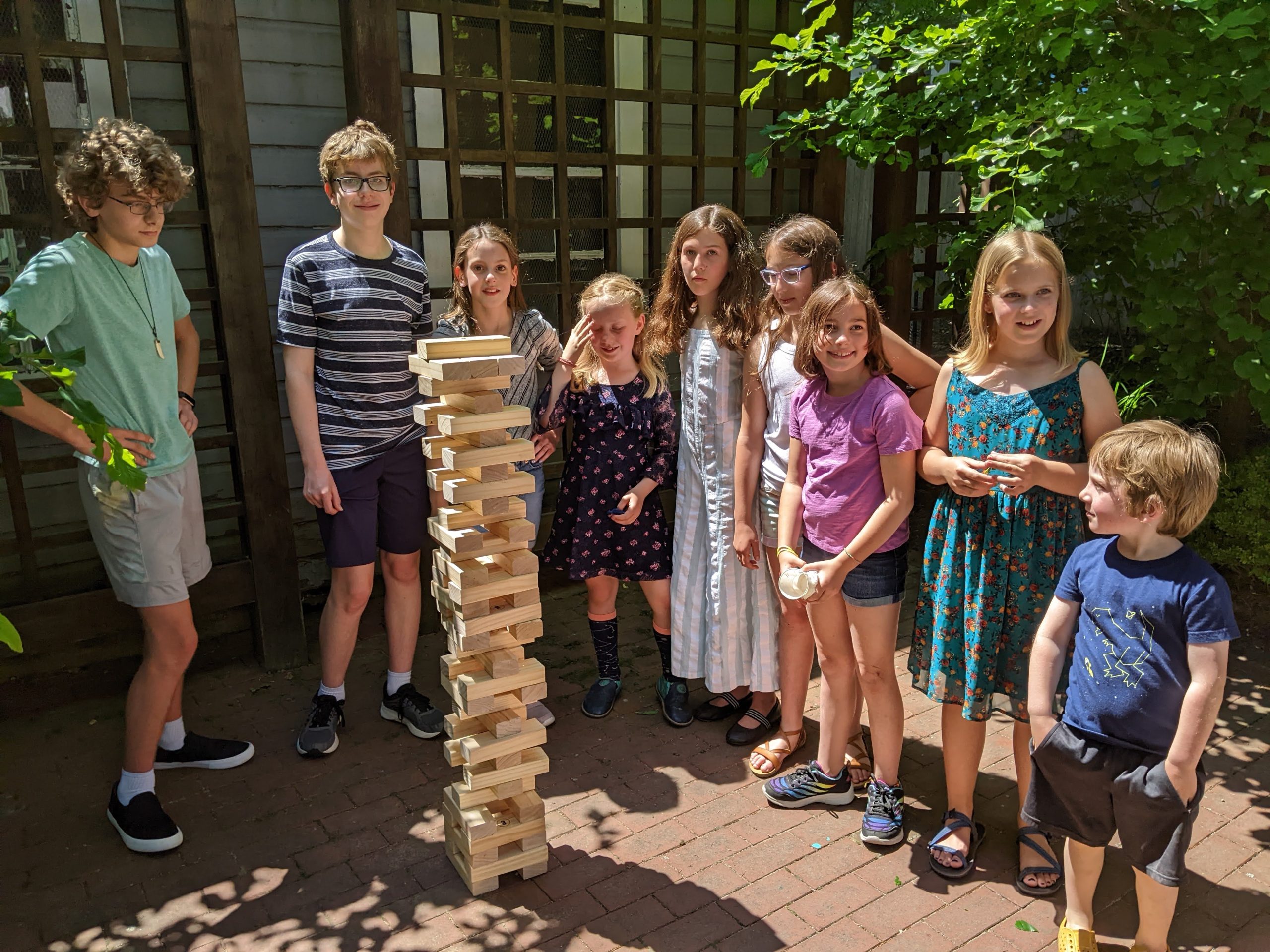
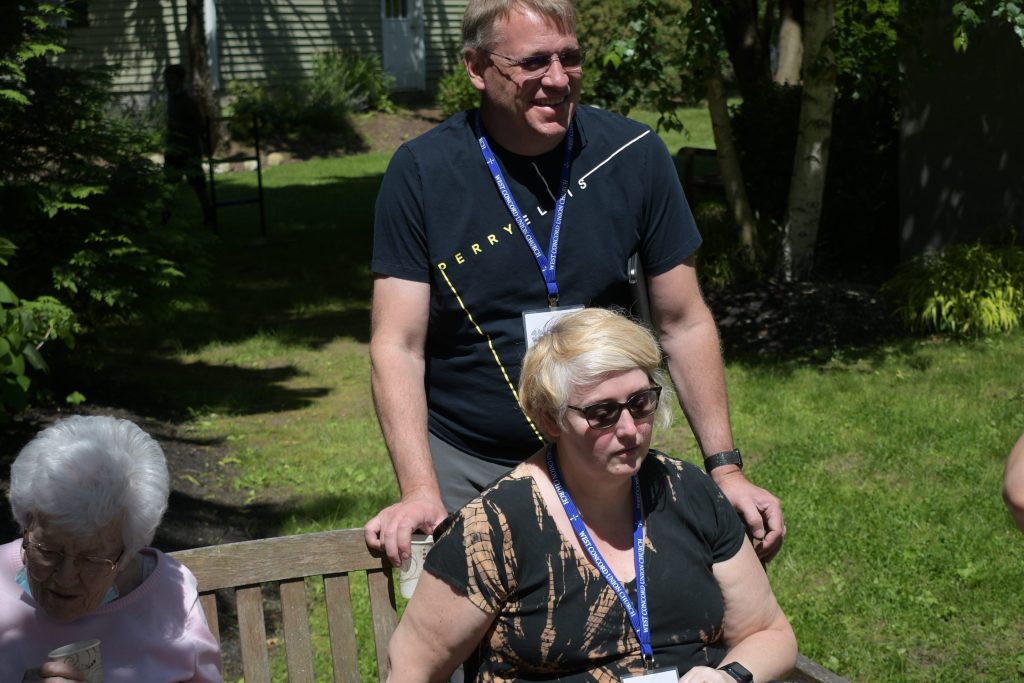
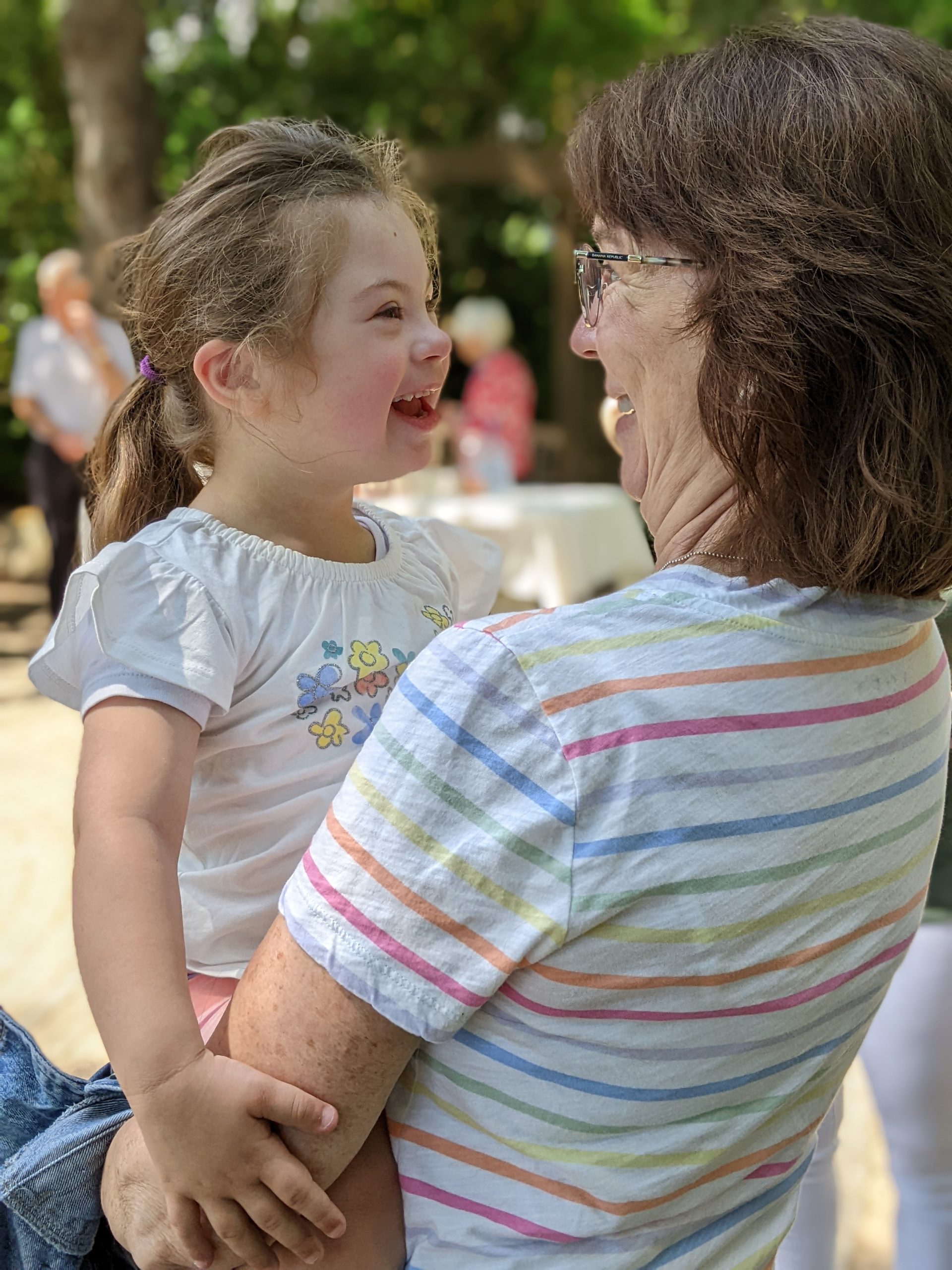
Reflections from Joyce DeGreeff on May 3, 2020
Psalm 139
1 Corinthians 12:12-27
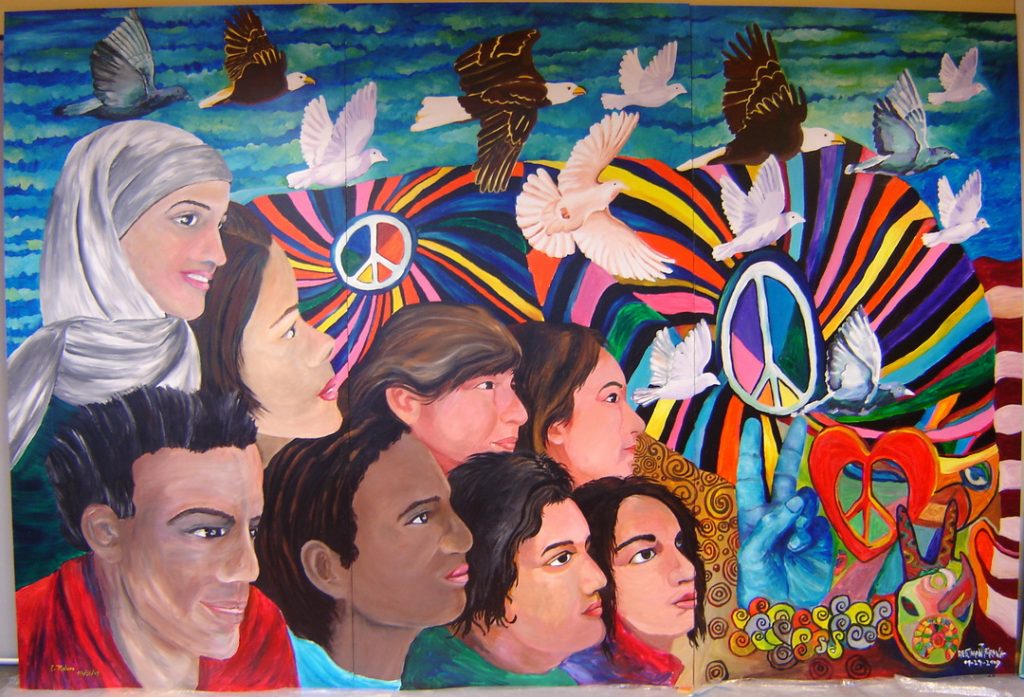
Good Morning Dear Friends…what a privilege it is for me to share some thoughts with you on this day when we are celebrating two of the things that are most precious to me in our our church: Our Awesome Youth and our Intentional Commitment to being an Open and Affirming community – one that welcomes and honors diversity and inclusion in all of its forms.
When I first moved to Concord with my family in 2002, we did a fair amount of church shopping. Our hearts quickly found a home when we eventually tried out WCUC. In addition to the music, the sermons, and the youth programs, we noticed right away the warmth of this community and the many ways that it was living the ONA statement that it had voted on three years before our arrival. It was in May of 1999, that this church decided to publicly affirm God’s call to love one another without exception and to recognize that welcoming such diversity enriches us all. This affirmation proclaims out loud that we are, everyone one of us, a beloved child of God – no matter what we look like, who we love, how much money we make, how we move, think, or communicate…we are “fearfully and wonderfully made” by God’s hands – the One who knit us into being and intimately knows and loves us exactly the way we are.
May of 1999…that was 21 years ago – It was before anyone in our current youth group was even born. Many of you were here at that time and I’ve heard that it was both a joyful and challenging process, but you persisted and followed God’s voice to make it happen. And here we are today seeing the fruits of your labor a generation later. I asked some members of the youth group to reflect on what it means to them that we are an ONA church. Listen to their voices:
“I think churches that are open and affirming are great because they bring people from different communities together as one and make people feel safe and comfortable – like they can express who they are and what they believe without any judgement – which I think is really important. I love WCUC because it’s such a welcoming, wonderful, and accepting community.”
“I think many people have associated Christianity with intolerance. If churches want to be accepting of all people as God intended, they should not put some people above others. My best friend wanted to find a religion where she could be herself and explore her spirituality. She immediately ruled out Christianity because she thought we were not welcoming of the LGBTQ community. It means a lot to me that I can bring any of my friends, no exceptions, to youth group and know they will be welcomed and treated as equals.”
“This church is special to me because I know that I can bring every part of me and I will be welcomed, accepted, and celebrated for who I am. I don’t have to hide or pretend to be someone I’m not.”
Our ONA statement clearly sends the message that all are welcome here and that no matter who you are, there’s a place for you – You Belong Here. We want you to “come, live in the light” because we know there is Joy and Freedom to be found when we can be fully who God created us to be.
Our ONA statement also reminds us that we are better together – diversity enriches all of us and we need each other. I like to think of it as “Mirrors and Windows”. We all need to see ourselves reflected in those around us and we all grow when we can look out and see something that’s new – something that is not part of our own experience but something that we can learn about and appreciate.
I remember the first time a child in our church wore noise cancelling headphones to help her body handle the higher volume sounds in worship. A week later, another child wore them and then another. Mirrors say “you are like me in some way” and we can be ourselves together.
I also love and miss the “windows” that I look through when we’re sitting in our sanctuary on a Sunday morning: I see families who are formed in various ways, I see young and old bodies of all shapes and sizes, I witness the gifts of our SF friends and their caregivers, and I appreciate the multiple ways we express joy – ranging anywhere from silent prayer to loud and heartfelt outbursts when the organ starts playing.
In the early Christian church, when the Corinthians were trying to figure out how to live in community, Paul told them this:
“Just as a body has many parts, but all of its parts form one body, so it is with the body of Christ” (this is our church community!) “God put (us) together so that (our) parts should have equal concern for each other. If one part suffers, (we all) suffer with it. If one part is honored, we all rejoice with it.”
Let’s keep these words in mind as we read our ONA statement together and remember how blessed we are to be a part of such a warm, welcoming and loving community of faith:
Our Open and Affirming Covenant (May 2, 1999; updated January 2020)
We, the members of the West Concord Union Church, are called to love one another as God loves us, freely and unconditionally. We further believe that diversity enriches our faith community.
Therefore, we welcome persons of any sexual orientation, gender identity and expression, age, race, socio-economic status, ethnicity, and physical and mental ability into full membership and participation in the body of Christ. We celebrate family in all its diverse forms and honor, support, and bless all loving and committed relationships. As we are one in Christ, we are called to accept and respect one another in the face of our differences. We agree that continued dialogue is necessary as we each grow in learning and understanding.
We commit ourselves to work diligently to end all oppression and discrimination which afflicts God’s people in our society. We seek to explore new ways of affirming our faith in community according to the wisdom of the Gospel. We strive, as individuals, to become more Christlike in our love for one another.

John 21:1-19
In John’s Gospel, the resurrected Jesus just keeps showing up.
First, Jesus shows up for Mary Magdalene – the first receiver of the good news of the resurrection. Jesus calls Mary by name and tells her: do not hold on to me. Go, tell everyone: I am rising.
Next, Jesus shows up for ten of the disciples, making his way through a locked door. Jesus shows the disciples his wounds, and says: Peace be with you. As God has sent me, so I send you.
A week later, Jesus is back with the disciples in the locked room again. This time, Thomas is there to see and touch him. And Jesus talks to the disciples all about all the folks who are going to come to believe in him, without having seen him.
Finally, in today’s text, Jesus shows up catching fish and serving breakfast. Three times, Jesus asks Simon Peter: do you love me? When Simon Peter says yes, Jesus replies: Feed my lambs. Tend my sheep. Feed my sheep.
What is Jesus up to, in these post-resurrection visits? Why does he keep showing up? What is he hoping to achieve?
Of all these stories, Jesus’ visit to Mary Magdalene is the shortest and most straightforward. He offers her comfort, and then says: Go, tell everyone: I am rising. And she does. Mary Magdalene goes right away to tell the disciples this news, and then begins to tell lots of other folks. Many sources tell us that Mary Magdalene was not only the first evangelist, but one of the greatest, travelling far and wide to speak to the humble and the great about Jesus.
Jesus’ visits to the disciples, however, don’t seem quite as productive. During his first visit, Jesus says: as God has sent me, so I send you. But the disciples apparently refuse to be sent. A week later, he finds them still in that same locked room. During this second visit, Jesus talks about all the people who will come to trust in him without ever seeing his wounds. But the disciples aren’t eager to take the hint and go out evangelizing. When Jesus appears for the third time, they’ve gone back to their old profession: fishing.
So, in this morning’s story, Jesus pulls out all the stops. This carpenter from a landlocked city gets the attention of his disciples by giving them unbelievable fishing advice. They catch so many fish they cannot haul them all in. Jesus reveals himself as a skilled chef and host, preparing the disciples an amazing breakfast, timed perfectly for their arrival on the beach. Finally, Jesus turns his focus on Simon Peter, perhaps his most enthusiastic follower. This time around, Jesus tries to make himself perfectly clear. Three times, Jesus asks: Do you love me? Three times, Jesus says: If you love me, feed my lambs. Tend my sheep. Feed my sheep. Peter, Jesus says: put down your net, and go out and start taking care of my people.
The post-resurrection Jesus, it turns out, is quite similar to the pre-resurrection Jesus. Jesus shows up among the people. Jesus shows up with love. And Jesus shows up with an invitation: go out and do something with what you receive from me! Spread the good news about God’s love. Respond to God’s love, by loving one another.
Somehow, it’s not immediately obvious to the disciples that they’re supposed to do something after the rising of Jesus. This season of Easter is a long, awkward transition for them between following the living Jesus, and getting their act together to begin the church. It may seem clear to us, now, that the disciples were supposed to do something with all they learned from Jesus, and with the good news of Jesus’ resurrection. But most of us struggle with the same things that they did.
How do we trust and love God deeply enough to do something about it? And what, exactly, are we supposed to be doing? How do we share the good news? How do we love our neighbors as ourselves? How are we personally called to do it today, if we can find the courage to try?
Jesus shows up from beyond the grave to give advice on this in our scriptures. And this week, two more of Jesus’ followers passed into the realm of the saints who have an awful lot to offer us as well: wisdom about how to follow Jesus here and now.
One of them is a young woman named Rachel Held Evans. She was just 37; let’s pray for her family, especially her spouse, Dan, and her two young children. Rachel grew up in an evangelical Christian church. She loved and challenged her tradition, and finally left it to join an Episcopal church. All along the way shared her wisdom, mostly in writing. She leaves behind her several books that we can read. Rachel tells us: “The folks you’re shutting out of the church will be leading it tomorrow. That’s how the spirit works. The future’s on the margins.” Rachel tells us, “I thought God wanted to use me to show gay people how to be straight. Instead, God wanted to use gay people to teach me how to be a Christian.”
The other leader on my heart who died this past week is Jean Vanier, a theologian and philosopher who founded L’Arche. L’Arche is an international network of residences for people with developmental disabilities and those who assist them. Thanks to Melissa, we’ve built a local relationship with a L’Arche community; we’ve invited them to some of our Sunday Fellowship dances. I’m grateful that Jean got to live a good long life. Jean tells us: “I am struck by how sharing our weakness and difficulties is more nourishing to others than sharing our qualities and successes.” Jean tells us, “Love doesn’t mean doing extraordinary or heroic things. It means knowing how to do ordinary things with tenderness.”
There are so many voices, ancient and new, which have guidance for us about how to go about this mysterious work of discipleship. We are not alone in our discernment. And within this organization of West Concord Union Church, we have another resource to listen to.
Twenty years ago, in a very different time, but with a few of the same people, this church affirmed an Open and Affirming covenant, expressing our desire to fully welcome a whole variety of people. This covenant includes people of all genders and sexual orientations, which is what the designation “Open and Affirming” is known for within our denomination. That was controversial enough, at that time. It was a difficult process for this church. And – the statement doesn’t stop there. More than fifteen years before the statement was written, this church had begun explicitly welcoming folks of all abilities, so that is in the statement, too. Also included: age, race, socio-economic status, family configuration, and ethnicity.
Our Open and Affirming Covenant sets lofty goals. It also expresses the necessity for learning and growth to reach them: and we’re still not there, 20 years later. We’re still working on becoming more Christ-like in our love for one another. But this is no surprise. The work of love, the work of discipleship, is work we do day by day, imperfectly, and beautifully. The trick is to remember our intention, and to try again.
Let us rededicate ourselves to this covenant, and to the daily work of discipleship, by affirming these words now together. I invite you to rise, in body and spirit. Take a deep breath, really let these words enter your heart.
Our Open and Affirming Covenant (May 2, 1999)
We, the members of the West Concord Union Church, are called to love one another as God loves us, freely and unconditionally. We further believe that diversity enriches our faith community.
Therefore, we welcome persons of any age, gender, race, sexual orientation, socio-economic status, ethnicity and physical or mental ability into full membership and participation in the body of Christ. We celebrate family in all its diverse forms and honor, support, and bless all loving and committed relationships. As we are one in Christ, we are called to accept and respect one another in the face of our differences. We agree that continued dialogue is necessary as we each grow in learning and understanding.
We commit ourselves to work diligently to end all oppression and discrimination which afflicts God’s people in our society. We seek to explore new ways of affirming our faith in community according to the wisdom of the Gospel. We strive, as individuals, to become more Christ-like in our love for one another.
Amen.
Today in our scriptures two people meet on a wilderness road, and the church is changed forever.
It all starts when an angel of the Lord comes to Philip. For those of you keeping track, this Philip is not the Philip who was one of the original 12 disciples. This Philip is known as Philip the deacon, because he was chosen to serve the poor in Jerusalem due to being full of the spirit, and full of wisdom. This Philip is also known as Philip the evangelist, because has been preaching in Samaria. His skill in sharing the good news of Jesus has been bringing many people into the church.
Now an angel of the Lord says to Philip, “Get up and go toward the south to the road that goes down from Jerusalem to Gaza.” On this wilderness road Philip discovers another person traveling south: a eunuch who is a court official of Candace, Queen of Ethiopia. Like so many people in the bible – many of them women – this court official is unnamed. At the suggestion of one of my mentors in ministry, I will call this person Dawit, an Ethiopian name that means “Beloved.” Not knowing Dawit’s preferred gender expression, I will use the pronouns they, them, and theirs.
It is hard to overstate how different Philip and Dawit are. These two are from different countries, on different continents. They grew up with different local languages and cultures. They were raised in different faith traditions. Dawit has a position of great power watching over the treasury of a Queen. By contrast, Philip has been spending most of his time making sure widows in Jerusalem get enough bread. Dawit has also been castrated, set apart from an early age. Philip, as far as we know, is unusual in his own society only because of his decision to follow Jesus.
It’s hard for people who are so different to meet one another, let alone have an in-depth conversation. Here, the Spirit intervenes, urging Philip on: “Go up to this chariot and join it.” Philip runs up and hears Dawit reading the Prophet Isaiah. We as readers know that Dawit has been to Jerusalem in order to worship, so we can guess that they are interested in the Jewish faith. Philip, on the other hand, was probably surprised to find this powerful foreigner with the text of Isaiah.
Philip asks, “Do you understand what you are reading?” This is, perhaps, an insulting question. It is certainly a bold one. Dawit says graciously, “How can I, unless someone guides me?” Dawit invites Philip to get up beside them in their chariot. These two proceed along their way together, discussing the scriptures. Philip shares what he understands about the good news of Jesus.
Dawit must be greatly moved by what they hear. When the two people come to some water, Dawit cries out, “What is to prevent me from being baptized?” Philip does not hesitate to do so. They both descend from the chariot, and Philip baptizes Dawit. Then, just like that, the encounter is over. Philip is whisked away by the Spirit, and Dawit goes away, rejoicing.
It all could have gone so differently. Philip could have been too cautious to engage such a lofty stranger. Dawit could have rebuffed the intrusion of a commoner from another land. Conversation could have broken down in a heated debate about the exact meaning of the text. It all could have gone so differently — especially that moment, when Dawit asks: What is to prevent me from being baptized? (more…)
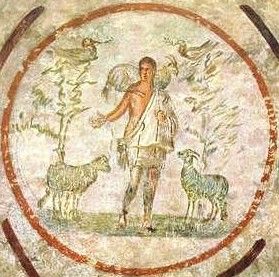 What psalm is more beloved than Psalm 23? It has been translated and re-translated, put into cross stitch patterns, and inspired paintings. It has been set to music countless times, we’ll hear a few today. It has been read at almost all of the funerals and memorials I have ever attended or officiated. It is a psalm that even those who rarely attend church have often heard of. It’s only six verses long, which means it’s easy to memorize.
What psalm is more beloved than Psalm 23? It has been translated and re-translated, put into cross stitch patterns, and inspired paintings. It has been set to music countless times, we’ll hear a few today. It has been read at almost all of the funerals and memorials I have ever attended or officiated. It is a psalm that even those who rarely attend church have often heard of. It’s only six verses long, which means it’s easy to memorize.
We love this psalm, most of us, and who can blame us? Consider the beauty of the King James version: The LORD is my shepherd; I shall not want. He maketh me to lie down in green pastures: he leadeth me beside the still waters. He restoreth my soul. He leadeth me in the paths of righteousness for his name’s sake. Yea, though I walk through the valley of the shadow of death, I will fear no evil: for thou art with me; thy rod and thy staff, they comfort me. Thou preparest a table before me in the presence of mine enemies: thou anointest my head with oil; my cup runneth over. Surely goodness and mercy shall follow me all the days of my life, and I will dwell in the house of the LORD for ever.
We love this psalm. But there is something strange about that. The Lord may be our shepherd, but we still want many things. We want love. We want forgiveness. We want new and improved versions of most of our friends and family members. We want larger bank accounts and smaller waist lines. We want a good election year for our party and a good season for our sports teams. We want pleasure and excitement and also wisdom and security. We want the power to protect those we love.
The Lord may be our shepherd, but we still want many things. And our lives do not always resemble green pastures, nor do we always follow in the paths of righteousness. In fact, we lie down and then get up each day in a world where green pastures are disappearing right and left and it is exhaustingly difficult to discern the path of righteousness. And even if we want to discern that path, even if we can, let’s be honest, sometimes we just get tired and need to take a break by the side of it.
The Lord may be our shepherd, but we still fear evil. We do not, in fact, always trust that God is with us, or that God’s rod and staff can protect us. And this is not surprising, because we witness our neighbors going hungry for food and justice every day. We witness our neighbors being tragically hurt and sometimes killed by their enemies, whether that enemy is a person, or an organization, or an addiction, or a disease.
The Lord may be our shepherd, but too many among us can see the bottom of our desperately dry cups. Goodness and mercy often feel very far from us. And we worry that we might never be able to find our way home into the arms of God.
We love this psalm. Why is that? I wonder if we love it because it shows us what we yearn for the most: who we want to be, and how we want to believe. We want to be people for whom God is enough. A people who are saved by God. A people whose faith and gratitude is so deep and profound, that it changes what we perceive, and how we live.
Though it was written long before Jesus lived, and died, and rose again, this is to me a resurrection psalm. There aren’t just rainbows and butterflies in this beautiful psalm, there is evil, and enemies, and the shadow of death: the hard stuff is all here. But right alongside it is abundance and mercy and hope. In this psalm, Easter shines through Good Friday triumphantly.
Here it is again, in this psalm, the Easter message we’ve been listening to this season, the promise of our God: that the power love is greater than all that is dangerous and terrifying and death itself. We come to church to hear to this message. We stick around to learn to trust this message. And even those of us who have been here a long time, we still yearn to live in this message more fully. We try over and over again to walk the paths of righteousness and accept God’s gifts of grace.
It is with this yearning that this congregation made an Open and Affirming covenant 15 years ago. If you don’t know what Open and Affirming means, you are not alone. It is the label that our denomination uses to let people know that a community offers a full and public welcome to people of all sexual orientations. And we decided to do that, which was saying a lot, I think, in 1999. But if you read the statement, you’ll realize that it’s far more audacious than that. We covenanted to explicitly embrace many other forms of diversity (though today we might want to expand this list even further). And not only that – we affirmed our intention to end all discrimination and oppression. And not only that – we promised to strive to become more Christ-like in our love for one another, to follow God’s call to love one another as God loves us, freely and unconditionally.
Now you could say that those folks who were here in 1999 were a little bit crazy. But if they were crazy, I say: this is the foolishness of the gospel. It is only a resurrection kind of faith that could make anyone believe that living up to this kind of covenant is remotely possible. Like the 23rd psalm, this statement shows us who this community was yearning to be, and how we were yearning to believe.
It’s a beautiful covenant. But I don’t think we’re quite there yet. So I wonder if we could make these promises again. Whether we could affirm this holy audaciousness again . Whether we can claim it as our own, those who are still here, those like me who are here now, so that it may guide us towards paths of righteousness, and right into the arms of God. Who knows what the Spirit may yet do in us. Is there anything impossible with God?
We, the members of the West Concord Union Church, are called to love one another as God loves us, freely and unconditionally. We further believe that diversity enriches our faith community.
Therefore, we welcome persons of any age, gender, race, sexual orientation, socio-economic status, ethnicity and physical or mental ability into full membership and participation in the body of Christ. We celebrate family in all its diverse forms and honor, support, and bless all loving and committed relationships.
As we are one in Christ, we are called to accept and respect one another in the face of our differences. We agree that continued dialogue is necessary as we each grow in learning and understanding.
We commit ourselves to work diligently to end all oppression and discrimination which afflicts God’s people in our society. We seek to explore new ways of affirming our faith in community according to the wisdom of the Gospel. We strive, as individuals, to become more Christ-like in our love for one another.
Let the people say: Amen.